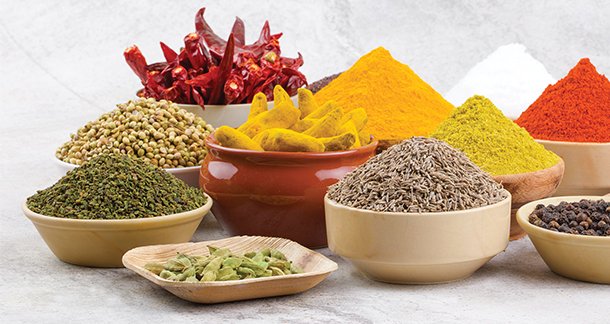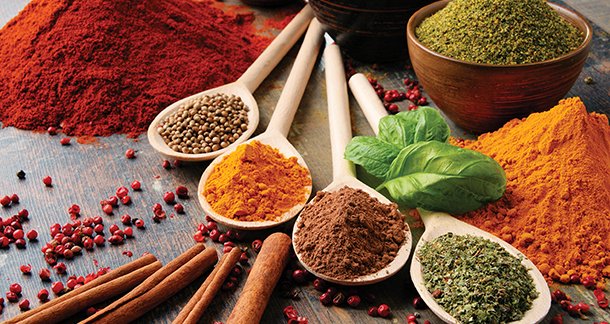Functional spices have always been an integral part of various culinary traditions worldwide. It is only in the present that people are becoming aware of its health benefits. Their richness in bioactive compounds makes them more than just flavour. That’s why they are known for their health advantages that can enhance overall well-being. Including it in daily meals has become popular as people have started focusing more on holistic health and natural remedies. So we will explore various health benefits of it and the ways it can be integrated into our daily diets.
Health Benefits
Functional spices are packed with nutrients and bioactive compounds that contribute to various health benefits. Here are some key advantages:
- Spices like turmeric and ginger contain anti-inflammatory properties that help reduce inflammation. It gives relief to patients with chronic diseases such as arthritis and heart disease.
- Many spices are rich in antioxidants, which help suppress oxidative stress and reduce the risk of chronic diseases.
- Garlic and oregano are some spices that boost the immune system and help to fend off infections.
- Spices like cumin and fennel stimulate enzyme activity and promote digestive health by improving gut function.
- Cinnamon has been shown to lower blood sugar levels by improving insulin sensitivity.
- Certain spices can help lower cholesterol levels and improve circulation, which improves overall cardiovascular health.
These benefits illustrate how functional spices can play a crucial role in maintaining health and preventing disease.
Incorporating Functional Spices into Daily Diets
Including functional spices in your daily diet can be an enjoyable way to keep your health in check. You can start with using spice blends, be they pre-made or homemade, but it is a good option for the beginning. Turmeric, ginger, and garlic are an evergreen combo and contain essential nutrients; you can use it in soups and stews for an improved taste.
Beverages can also be modified with the right use of spices, as you can add cinnamon or ginger to teas, smoothies, or coffee. You will notice how it enhances their flavour while adding beneficial compounds. If you need one more such example, just add olive oil and spices like cumin or paprika to your roasted vegetables and see the magic.
These are not limited to beverages only, as you can use them in sauces and dressings. For instance, mustard seeds or chilli powder can transform vinaigrettes to give a twist to their existing flavour. You can also explore international cuisines to know how they are experimenting with this and creating new combinations. Indian curries, Middle Eastern dishes, and Mexican salsas, for example, are rich in spices known for their functional properties. All these items are enough to inspire and encourage you to take your diet to the next level.

The Science Behind Functional Spices
The health benefits provided by functional spices are not fictional or placebos, as each benefit is backed by science and highlights its bioactive compounds. For instance, curcumin in turmeric is known for its potent anti-inflammatory properties. This helps those suffering from arthritis. Similarly, ginger contains gingerol, which exhibits antioxidant effects and may aid in digestion. Compounds found in garlic are also science-backed and can enhance immune function by stimulating the immune cells’ activity. Last but not least, cinnamon can reduce blood sugar levels by slowing carbohydrate breakdown in the digestive tract.
So, do not fall for any false promises of those who just want to pass their inventories and sell you something you don’t need. Just believe in science and make informed decisions to make the most of your spices.
Cultural Importance
Functional spices have a huge importance in various cultures and are used widely across worldwide cuisines. We can take an example of traditional Indian medicine (Ayurveda), where it is used for its healing capabilities. Turmeric is often referred to as “the golden spice” due to its extensive use in both cooking and medicine.
On the other hand, you can notice that spices such as cumin and coriander are used to add depth to dishes while offering health benefits In Middle Eastern cuisines. Mexican cuisine incorporates chilli peppers for the same reason.
Despite being a flavour agent and nutritional property, it is also used in rituals and traditions that celebrate its significance. Many cultures have specific dishes prepared during festivals that use particular spices that are believed to bring good fortune or health. These are combined reasons for functional spices being this important throughout the world.
Challenges and Considerations
There are some challenges to consider while incorporating functional spices into diets:
- Spice products’ quality can vary due to differences in sourcing and which methods were used to process them. So, making sure that your spices are of high quality is essential for utilising them to their full potential.
- Some individuals may be allergic or sensitive to certain spices. That’s why being aware of any adverse reactions when introducing new spices into the diet is advised.
- Certain spices may interact with medications; for example, garlic can thin the blood and may interfere with anticoagulant medications.
|
Spice |
Potential Health Benefit |
Consideration |
|
Turmeric |
Anti-inflammatory |
It may interact with blood thinners |
|
Ginger |
Digestive aid |
It can cause heartburn in some individuals |
|
Cinnamon |
Blood sugar regulation |
High doses may cause liver issues |
|
Garlic |
Immune support |
May increase bleeding risk |
|
Black Pepper |
Enhances nutrient absorption |
Can irritate the digestive tract |
Understanding these challenges lets consumers make informed decisions about incorporating functional spices into their diets safely.
Conclusion
Functional spices contain many health benefits and also can improve modern diets. This is because enhancing flavour is just the basic role of these spices, as they are also a part of other natural ingredients. You can positively make use of it by having it in your daily diet. You just have to understand the science behind their effects.
Plus, it will be more important to embrace them for their value beyond mere flavouring agents as cultural traditions continue to celebrate their usage. Overall, including it will let you enjoy delicious meals while reaping substantial health rewards.



